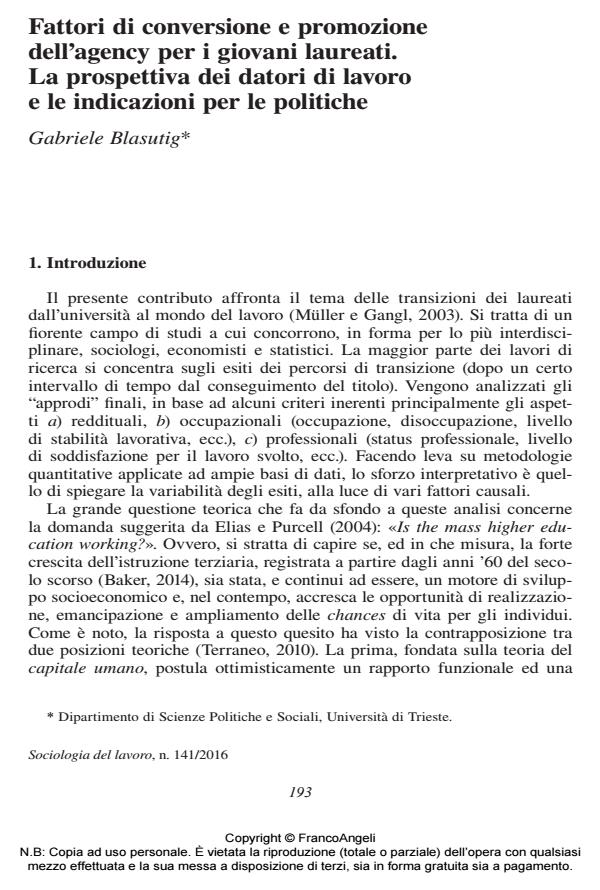Conversion factors and promotion of agency for young graduates. The employers’ perspective and some suggestions for policies
Journal title SOCIOLOGIA DEL LAVORO
Author/s Gabriele Blasutig
Publishing Year 2016 Issue 2016/141
Language Italian Pages 16 P. 193-208 File size 123 KB
DOI 10.3280/SL2016-141012
DOI is like a bar code for intellectual property: to have more infomation
click here
Below, you can see the article first page
If you want to buy this article in PDF format, you can do it, following the instructions to buy download credits

FrancoAngeli is member of Publishers International Linking Association, Inc (PILA), a not-for-profit association which run the CrossRef service enabling links to and from online scholarly content.
The paper addresses the issue of the transitions of graduates in the labor market. By taking the perspective of the capability approach, it aims at reflecting on the conditions that influence the graduates’ agency. To this end, the paper focuses the employers’ point of view, as they control, during the matching process, a set of conversion factors that determine the actual capability strength of a degree. On the base of in-depth interviews, the study addresses the employers’ representations, beliefs, attitudes and behaviors. What emerges is a picture characterized by patterns of employment and recruitment systems which are highly differentiated, interpreted in the light of organizational variables. On this basis, we suggest some policy guidelines to guarantee best conditions for the transitions of graduates into the labor market.
Keywords: School to work transitions, graduates employability, employers’ perspective, capability approach
Gabriele Blasutig, Fattori di conversione e promozione dell’agency per i giovani laureati. La prospettiva dei datori di lavoro e le indicazioni per le politiche in "SOCIOLOGIA DEL LAVORO " 141/2016, pp 193-208, DOI: 10.3280/SL2016-141012